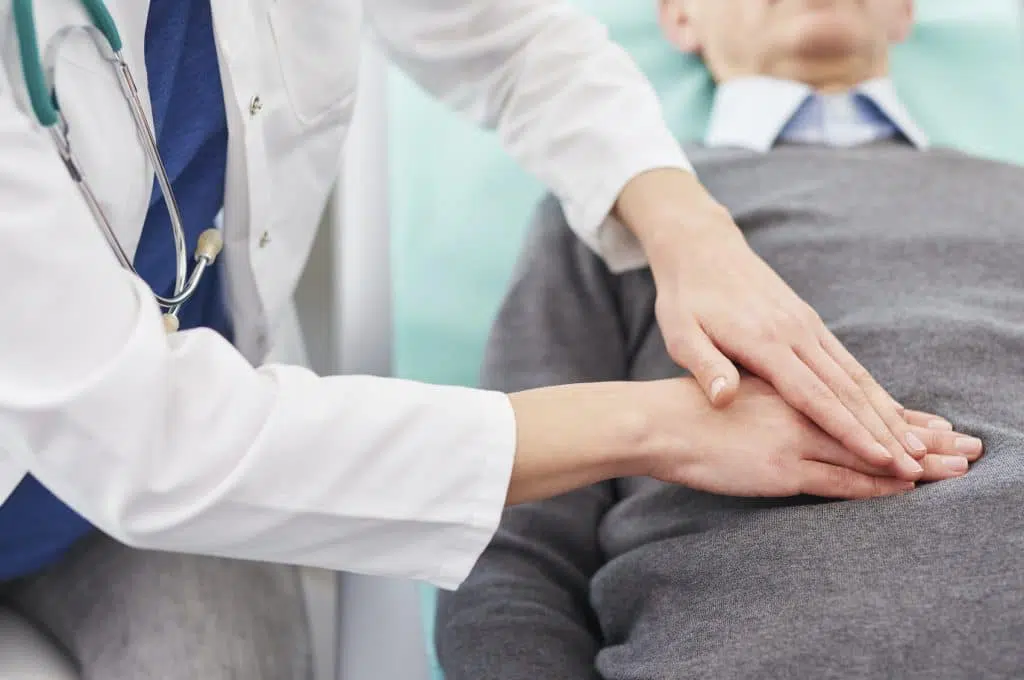Call Now!
Torrance Office: +1 (424) 360-0155

If the upper part of the stomach bulges enough to push through muscles that separate your diaphragm from your abdomen, you may be diagnosed with a hiatal hernia. This is something that a Hiatal Hernia Doctor should address soon before the problem arises
The diaphragm has a hiatus (small opening) through which the esophagus passes. Your esophagus allows swallowed food to enter your stomach. A hiatal hernia interferes with normal functioning of this opening by pushing a part of your stomach through the hiatus and into the diaphragm.
Smaller hiatal hernias typically do not cause problems. In fact, most people with a negligible hiatal hernia don't know they have one unless their hernia doctor discovers it while checking for other medical conditions. Hiatal hernia symptoms mimic many other conditions like ulcers, heart disease and gallbladder/pancreas disorders. A complete physical examination, imaging scans, and lab tests are essential for accurately diagnosing a hiatal hernia.
Enlarged hiatal hernias will produce symptoms such as severe heartburn and pain. Very large hiatal hernias may need surgery to prevent esophageal erosion, severe discomfort, and breathing difficulties.
Weakened muscle tissues are the primary reason a hiatal hernia develops. You may be at risk for having a hiatal hernia if:
Lifestyle choices such as smoking, lack of exercise and regularly eating unhealthy foods may aggravate and increase the size of smaller hiatal hernias.
Large hiatal hernias may cause you to vomit blood or pass blackened stools. This indicates there may be gastrointestinal bleeding occurring as the hernia further damages muscles dividing your abdomen from your diaphragm.
If your doctor suspects a hiatal hernia, you may have your upper digestive system x-rayed or undergo an upper endoscopy.
An endoscopy procedure involves a doctor inserting a tube equipped with a tiny camera and light down your throat. Endoscopic cameras allow your doctor to examine your stomach and throat for signs of hiatal hernia inflammation.
Another diagnostic test called an esophageal manometry measures the rhythm of your esophageal muscle contractions when swallowing. It also assesses the force and coordination used by the esophageal muscles as food is pushed into the stomach.
Not everyone with a hiatal hernia will need hiatal hernia surgery. Small hiatal hernias may be controlled by:

Hiatal hernia repair becomes necessary when the hernia threatens to become strangulated or constricted. Strangulated hernias cause blockages that cut off the supply of blood to a portion of the intestines, producing an increased risk for septicemia (blood infection) and bleeding.
A minimally invasive surgery, laparoscopic hernia repair involves a doctor inserting a laparoscope through several tiny incisions in your abdominal wall. Sometimes called "keyhole surgery", laparoscopic repair allows your surgeon to repair the hernia by covering the hiatus with a surgical mesh material that is attached to muscle tissues. This mesh also strengthens muscle tissues to prevent the hernia from enlarging.
After making an incision in the groin area, the surgeon pushes the hiatal hernia back into your abdomen and proceeds to strengthen the stomach wall with synthetic mesh or stitches. Open hiatal hernia repair can be used on all types of hernias, including ventral, inguinal, femoral and incisional hernias.
If you are suffering from symptoms of a hiatal hernia, please call Rolling Hills Medical today to schedule a consultation about your options for hiatal hernia repair. You can reach our Hernia Doctor and his team at 424-250-8699
